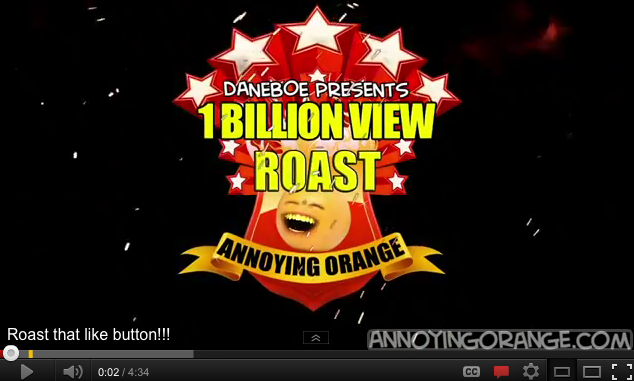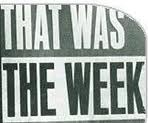This was a week when we needed an app that would filter out all of the lame (and occasionally non-lame) patter about the pending Facebook IPO. (Example: The Guardian tells us six things we need to know about the IPO, as if somehow its readers were considering a purchase)

Underlying all the link-fodder, of course, is the extraordinary transformation that Facebook has wrought on the web, and everything that has come to mean in people's lives, as the latest Pew Internet survey reveals.
TECH BIZ & TRENDS
I spend a lot of time in my work trying to figure out how innovation comes about. So I was fascinated by two articles from the mainest of the mainstream media on the topic this week: Why Brainstorming Doesn’t Work is a long read that appeared in The New Yorker, ironically, during the same week as the NY Times issued a similar jeremiad against "groupthink".
Trend-wise, highly respected (and followed) tech guru Robert Scoble suggests that the intense tech disruption of the last 8 years may recede this year as a new class of enabling companies step up to help others scale their businesses by leveraging the transformational aspects (like the cloud, apps, social, etc,)
From the department of geek, part 2 of RWW's interview with Netflix's Daniel Jacobsen posits a future when the "app" experience we are seeing on mobile becomes a standard on laptops and certainly televisions.
Super-hot social blogging platform Tumbr has begun to hire experienced editors and writers to help its users make sense of the mass of content produced on the site every minute. A trend?
Marc Andreesen opines about the VC and startup world in the wake of his new $1.5 billion fund. Worth the read.
Buzzworthy start-up CodeAcademy, which provides online training for software programmers, has now become a platform that supports outsiders who want to create their own courses. I mention this because I was one of 100,000 people who signed up for free training in a single two-day period in January. I'm also one whose head hurt after the first lesson. I'll never be a hacker, I fear, but it was fun trying.
ONLINE VIDEO & CONTENT
Time Mag looks at YouTube as of 2012, but since the whole article is fire walled, check out Kevin Nalts' summary. BTW the headline is great: "The Beast with a Billion Eyes."
Will Richmond of VideoNuze tells us why cable doesn't "get" YouTube, and he thinks they sound like broadcasters back when cable was the disrupter.
In case you hadn't noticed, YouTube isn't the only online video provider that's investing in original content. Here's a quick update.
Are you a member of the "Content Creation Class"? Check out this post, which divides us into creators and consumers in a way that you may find useful, or perhaps irritating, or both.
"Temporal Metadata" may be a term that gives you a headache, but as this very smart post explains, new forms of tagging the meaning and content within videos may hold the key to creating value for online video publishing. Efforts in Europe like the NoTube initiative are addressing it.
Two startups, Frequency and Showyou, are among the new breed of startups trying to make sense of the tonnage of video now available via the web. Trust me, there will be more (both tonnage and startups trying to help curate, manage, prioritize, contextualize and discover online video). It's a big opportunity.
AOL steps up its investment in online video with a plan to generate 12 hours of video per day from its HuffPo subsid.
One of my frequently-used sites, Goodreads, bailed on Amazon as the provider of its descriptive book data, and this post explains why, indeed, explains the complexities of online businesses that rely upon outsourced metadata generally.
A smart post from the Atlantic called "Why the Future of the Book is the Stream," which suggests that the Netflix on demand sub model will work with books.
The NY Times ran a ginormous story on Barnes & Noble this week, "The Bookstore's Last Stand"
FILM & TRANSMEDIA
Life is not easy for the indie filmmaker, as this Sundance wrap-up post from IndieWire makes abundantly clear, along with some great tips.
Lina Srivastava has done a lovely job of aggregating examples of "Narrative Design for Social Action" using the Pinterest platform, the first time I've seen it done so well. It looks a bit like my Delicious "Stack" on Transmedia, only Pinterest presents a denser, tile-based UI.
Leave it to Frank Rose to provide great context, as with this analysis of the "Game of Thrones" transmedia components on his Deep Media blog (The banner: How the Internet is changing storytelling)
A couple of posts about content marketing & transmedia caught my eye this week, one by Marc Binkley that incorporates some of the ideas from Ernest Barbaric's post, "What is Content Marketing"
As Sony replaces CEO Howard Stringer with Kazuo Hirai, it's hard not to feel a bit sad that the giant tech/media company has fallen so fast and so low. Stringer is class A human, who could not turn the battleship around,
Vimeo has launched a "Focus Forward" program to stimulate documentary shorts about tech innovation. Worth keeping an eye on.
TOOLS
If the rise in digital storytelling continues, there will inevitably be a surge of new tools to help content creators who don't want to reinvent the wheel. To wit, the buzz all over the web around TumbleCloud, a cloud-based collaborative storytelling platform
Three tools that were new to me -- HipGeo, StoryWheel, and CowBird -- are described in this post from a self-described uberGeek.
This post offers a nice survey of "journalism 2.0" tools.
 Tuesday, May 14, 2013 at 10:52 AM by
Tuesday, May 14, 2013 at 10:52 AM by  Nick DeMartino
Nick DeMartino  Key to the Sanditon strategy is the formulation of their Theatrics site’s value for audience engagement. The overall storyline calls for residents of the town of Sanditon to “ beta test” a new type of online video software called Domino. The Theatrics site is where that “test” is being conducted, allowing fans to create their own characters and interact directly with the storyline in a completely new interactive experience.
Key to the Sanditon strategy is the formulation of their Theatrics site’s value for audience engagement. The overall storyline calls for residents of the town of Sanditon to “ beta test” a new type of online video software called Domino. The Theatrics site is where that “test” is being conducted, allowing fans to create their own characters and interact directly with the storyline in a completely new interactive experience.


